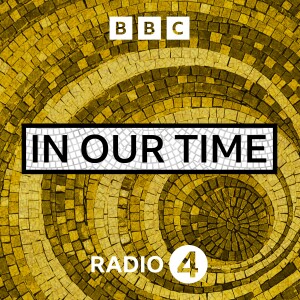
Death in Venice is Thomas Mann’s most famous – and infamous - novella.
Published in 1912, it’s about the fall of the repressed writer Gustav von Aschenbach, when his supposedly objective appreciation of a young boy’s beauty becomes sexual obsession.
It explores the link between creativity and self-destruction, and by the end Aschenbach’s humiliation is complete, dying on a deckchair in the act of ogling. Aschenbach's stalking of the boy and dreaming of pederasty can appal modern readers, even more than Mann expected.
With
Karolina Watroba, Post-Doctoral Research Fellow in Modern Languages at All Souls College, University of Oxford
Erica Wickerson, a Former Research Fellow at St Johns College, University of Cambridge
Sean Williams, Senior Lecturer in German and European Cultural History at the University of Sheffield
Sean Williams' series of Radio 3's The Essay, Death in Trieste, can be found here: https://www.bbc.co.uk/programmes/m001lzd4
view more
More Episodes
The Bluestockings
 2014-06-05
2014-06-05
 2014-06-05
2014-06-05
The Talmud
 2014-05-29
2014-05-29
 2014-05-29
2014-05-29
The Rubaiyat of Omar Khayyam
 2014-05-22
2014-05-22
 2014-05-22
2014-05-22
Photosynthesis
 2014-05-15
2014-05-15
 2014-05-15
2014-05-15
The Sino-Japanese War
 2014-05-08
2014-05-08
 2014-05-08
2014-05-08
The Tale of Sinuhe
 2014-05-01
2014-05-01
 2014-05-01
2014-05-01
Tristram Shandy
 2014-04-24
2014-04-24
 2014-04-24
2014-04-24
The Domesday Book
 2014-04-17
2014-04-17
 2014-04-17
2014-04-17
Strabo's Geographica
 2014-04-10
2014-04-10
 2014-04-10
2014-04-10
States of Matter
 2014-04-03
2014-04-03
 2014-04-03
2014-04-03
Weber's The Protestant Ethic
 2014-03-27
2014-03-27
 2014-03-27
2014-03-27
Bishop Berkeley
 2014-03-20
2014-03-20
 2014-03-20
2014-03-20
The Trinity
 2014-03-13
2014-03-13
 2014-03-13
2014-03-13
Spartacus
 2014-03-06
2014-03-06
 2014-03-06
2014-03-06
The Eye
 2014-02-27
2014-02-27
 2014-02-27
2014-02-27
Social Darwinism
 2014-02-20
2014-02-20
 2014-02-20
2014-02-20
Chivalry
 2014-02-13
2014-02-13
 2014-02-13
2014-02-13
The Phoenicians
 2014-02-06
2014-02-06
 2014-02-06
2014-02-06
Catastrophism
 2014-01-30
2014-01-30
 2014-01-30
2014-01-30
Sources of Early Chinese History
 2014-01-23
2014-01-23
 2014-01-23
2014-01-23
012345678910111213141516171819
Create your
podcast in
minutes
- Full-featured podcast site
- Unlimited storage and bandwidth
- Comprehensive podcast stats
- Distribute to Apple Podcasts, Spotify, and more
- Make money with your podcast
It is Free
- Privacy Policy
- Cookie Policy
- Terms of Use
- Consent Preferences
- Copyright © 2015-2024 Podbean.com



